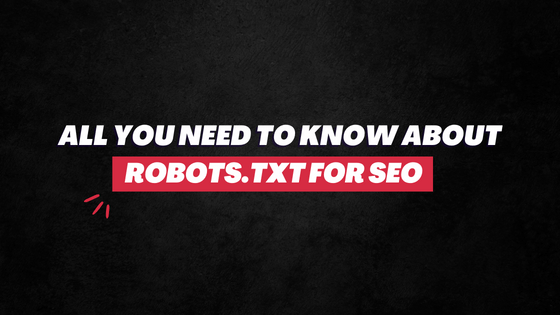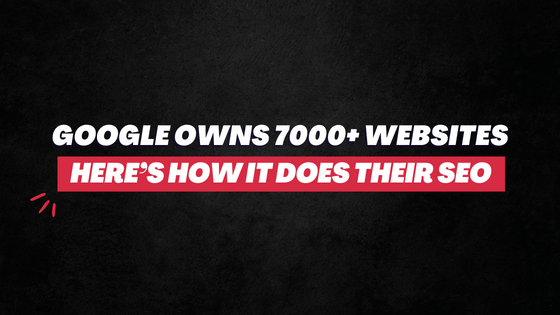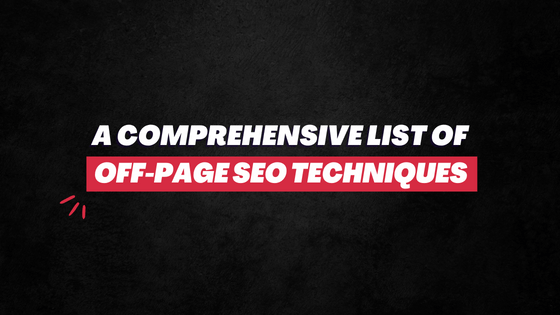Between June and October 2019, the organic traffic of my blog dropped by almost 90 percent. (Screenshot below)
Around the same time, Google made two Broad core algorithm updates. One, in June. Another one in October.
Did you connect the dots?
I am pretty sure, my site wasn’t alone to be hit by the update.
In fact, The Daily Mail lost 50 percent of its traffic in 24 hours following June 2019 Google core search algorithm update.
It led its SEO Director seeking help on the Google Search Console forum:

Thankfully, my blog recovered back (not without doing some serious damage) and is going great now in terms of ranking and organic traffic.
But how did that happen?
Let me explain… But before that, here’s some (unnecessary) explaining…
Google Algorithm Updates – And The Confusion They Bring
In 2018, Google made 3,234 updates in its search algorithm. This averages to 9 updates a day.
Of course, most of these improvements are very minor to even notice.
However, once in a blue moon, a major Google algorithm update arrives and SEOs lose their sh#t.
What’s worse is that these changes to search, often, aren’t concrete. Nobody knows what they are and what needs to be done to keep the websites safe.
For instance, Google recently dropped its BERT update, one of the biggest changes since its 2015 RankBrain. While the company did a fair job of explaining what it is, there’s no concrete answer to how it’s going to affect the websites.
Interestingly, following the Google BERT update in October, even the New York Times saw a significant decline in search ranking.
In addition, Google releases its Broad Core Algorithm updates a few times a year, which are even vaguer…

With all these changes in the Google algorithm, it isn’t surprising that your site is hit negatively too and your search ranking has dropped significantly.
How I Recovered My Blog?
As mentioned, between June and October 2019, my blog’s traffic dropped by about 90 percent.

It was quite distressing and I had no clue how to “fix” it.
The blog was decently quick in loading time. The content published here was great. There was nothing spammy or any red signs.
So, naturally, I read countless articles. Almost all of them were worthless.
In this span, I disavowed many backlinks in the hope that it might fix things.
I deleted a handful of articles, still hoping.
But nothing happened.

I continued publishing new content on the blog per my editorial calendar. Still confused and lost though.
And then October came and Google rolled out another Broad Core Algorithm update.
Just like that, within a few days, my traffic started climbing. The ranking improved – and so did the CTR.
In short, I didn’t do anything substantial on my end to recover my blog after it was hit by a Google update.
Its ranking dropped for no reason – and it came back (thankfully) for no reason.
Those 4-5 months weren’t easy though. I lost plenty of opportunities. My Alexa Ranking crashed. And so much of my time got wasted.
You Aren’t Wrong

When your website’s Google ranking and traffic have significantly declined, it doesn’t necessarily mean that you’re wrong.
Not all algorithm updates rolled by search engines are perfect.
At times, they might mess things up for many webmasters for no particular reason.
So, it’s essential that during such time you don’t go out of your way to make unnecessary changes on your site with the hope to “fix” and “recover”.
In reality, there might nothing be there to fix and recover.
Your site is okay.
Yes, it would be difficult – especially if it’s your clients’ website – but you shouldn’t panic.
What You Should Do?
If your site’s ranking and traffic have dropped a lot in a very quick span, there are a few things you should do.
1. Go to your Google Search Console and check the Manual Action tab.
It will likely be clean/green.
However, if you have manual actions against your site, go through the report and take the necessary actions as Google suggests.
2. In Search Console, also see for any messages.
If there are some on-site issues or there’s some problem in indexing, you will be notified about it through an email and message in your dashboard.
3. The ranking has dropped because your site may have lost many backlinks in a quick span.
Head over to the Ubersuggest Backlink tool, enter your domain, and check the result.

If this is the case, focus slightly more on (quality) link building until your ranking starts picking.
4. If you made some changes on your website prior to this ranking drop (maybe you changed its design, tweaked some codes, or installed a new plugin), it is likely those “changes” are at fault.
Audit those changes.
If it makes sense, revert them back and see if it fixes the problem.
5. Check the speed of your website. It takes a big hit after people install new plugins on their websites or add new codes.
Use Google’s PageSpeed Insights.

If it’s low, make improvements to make your site faster.
6. Audit content quality on your website.
Since you have written the content yourself, you would find it difficult to realize that they are of poor quality.
In that case, read this: 14+ Warning Signs Your Website Has Bad Quality Content
If the content is thin, there are two things you should do:
(i) Delete that page altogether
(ii) Improve its quality by adding more resources to it, increasing its length, adding more visuals, and optimizing it better.
Read this post: How to Update Old Content to Boost SEO? (It includes 15 actionable tips that would genuinely help you a lot!)
If you have performed these 6 steps and still aren’t sure why your website ranking dropped, it’s likely because of an algorithm update.
Search online if Google recently rolled an update.
Such updates can take up to a few weeks to hit a website. So, even if the update was released, say, 3 weeks back, don’t rule out its negative impact.
That update might just be the reason why your site ranking has declined.
What do you do now?
Nothing much really. Just like what I did!
Continue doing what your marketing plan says. Keep publishing high-quality content. Keep improving your SEO strategy.
Conclusion
In the next few months, when Google will roll out another of its major algorithm updates, hopefully, you see a boost in your search ranking and organic traffic.

Follow Google SearchLiason on Twitter to keep up with such updates.
Admittedly, when your site is wrongly hit by an algorithm change and your ranking has crashed, it’s not easy.
But it’s essential to not panic and to continue with the fundamental rules of SEO.
What those “fundamental rules” are? Check out (and bookmark) this the only SEO checklist you’ll ever need.
Hope this post helps.
If it did, please share it on your fav social media platform! 🙂



